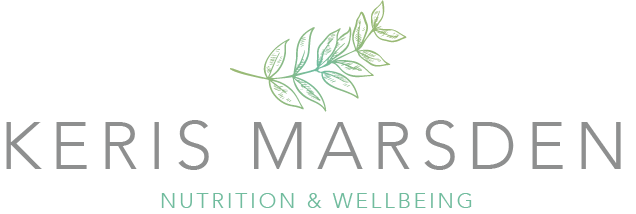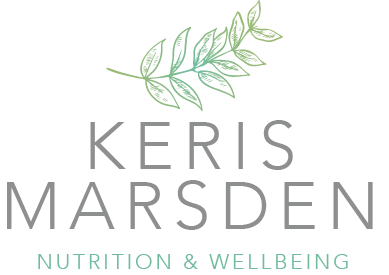Collagen: all you need to know
Collagen supplements are becoming increasingly popular with claims that include more youthful skin, better joints, thicker hair and injury recovery.
You can source bovine, marine or even plant-based collagen.
Question is: is it worth it? and which one is best?
What is collagen?
Collagen makes up the building blocks of many different structures within the body, in particular your joints, muscles, skin and digestive system.
Your body constantly makes collagen to help repair and rebuild tissues.
You can also obtain it from your diet by eating meat, small bones (found in fish or chicken) and skin (from fish and chicken).
It’s now also widely available in supplement form.
Types of collagen
There are a few types of collagen each with a slightly different structure.
The main ones are:
Type 1: this is most abundant in the body and found in tendons, ligaments, skin, bones and teeth
Type 2: has more elasticity and is primarily found in joint tissues and cartilage
Type 3: this is found in muscles, skin, organs and blood vessels
Benefits of collagen supplementation
Collagen supplements have developed a reputation for anti-ageing properties.
Whilst they’re unlikely to knock decades off your appearance, there is increasing research they could have a positive impact on your joints and skin health.
Studies have observed collagen supplementation may be helpful for
Joint pain management: especially for individuals who don’t consume meat and collagen rich foods.
Osteoarthritis: taking 10g hydrolysed collagen over six months observed a significant reduction in joint pain.
Rheumatoid arthritis: a low dose of 20 mcg/day can help support immune system function and produce compounds that can reduce joint degradation.
Skin health: both collagen and protein together may relieve skin ageing by supporting your skin cells' own production of collagen. Having higher collagen levels may also increase the production of hyaluronic acid which helps to lubricate skin, relieving dryness.
Sleep: 10g collagen hydrolysate contains around 2.5 g of glycine, this can improve sleep quality and as a result increases productivity.
Post surgery and wound healing: it may help to increase internal collagen production at the wound site.
NOTE:
For Osteoarthritis and Rheumatoid arthritis type 2 collagen maybe more helpful for supporting cartilage.
Most collagen supplements contain high amounts of type 1 and type 3. You can buy products that specifically contain type 2 (referred to as UC II or CII), they tend to be more expensive but the doses needed is much lower (40mg).
Type 2 supplements are sourced from animals, typically chicken cartilage.
Types of collagen supplements
Collagen is generally regarded as a safe supplement to take.
It does contain oxalates so higher doses, usually obtained from powder-based supplements, should be avoided if you suffer from oxalate-based kidney stones.
Collagen supplements are sourced from:
Bovine
Fish (referred to as marine)
Plant sources
Tips for choosing a supplement
Supplements are available in powder and capsules.
The powder form enables you to easily take a higher amount and follow the doses of 10-30g used in some studies.
Look for supplements that contain collagen in hydrolysed form.
It appears to have a better absorption rate as the manufacturing processes break it down into smaller particles.
Most collagen products are environmentally sustainable as they are made from the waste products of farming and fish processing. It’s still important to support better food sourcing practises and look for collagen obtained from grass fed, ethically raised animals and wild caught fish.
Brands that do this include Nu U, Hunter Gatherer, Neocell and Great Lakes.
What’s best: bovine, marine or plant based collagen?
Bovine collagen contains predominantly type 1 and 3 collagen so is generally helpful for joints, injuries, skin, gut health, hair and nail health. It may also support the production of creatine, a compound that muscles use to generate energy so it could improve exercise performance.
Fish or marine collagen, contains primarily type I collagen as it’s made from fish skin, bones and scales, it can be helpful for skin and hair health.
Plant based collagen products are not technically collagen, they are simply amino acids supplements usually with added vitamin C which is needed to help your body make collagen.
This may be a good option if you follow a plant-based diet.
Is collagen beneficial as a protein supplement?
There’s little point taking collagen as a protein supplement as it only contains a few amino acids (the building blocks of protein) and is usually more expensive than protein powders which contain a much greater variety of amino acids.
How and when to take collagen
Collagen can be taken at any point in the day.
Taking it on an empty stomach may help maximise absorption, alternatively you can add it to a smoothie, yogurt, porridge or dissolve in a hot drink.
Taking before bed may help support better quality sleep due to the glycine content, you could also dissolve in a milk-based drink or chamomile tea to create a nice sleep cocktail.
I also like to stir into nut butter, add to flapjacks and make collagen chocolates by adding to melted dark chocolate.
Here’s my Sea salt and cacao collagen chocolates recipe.


